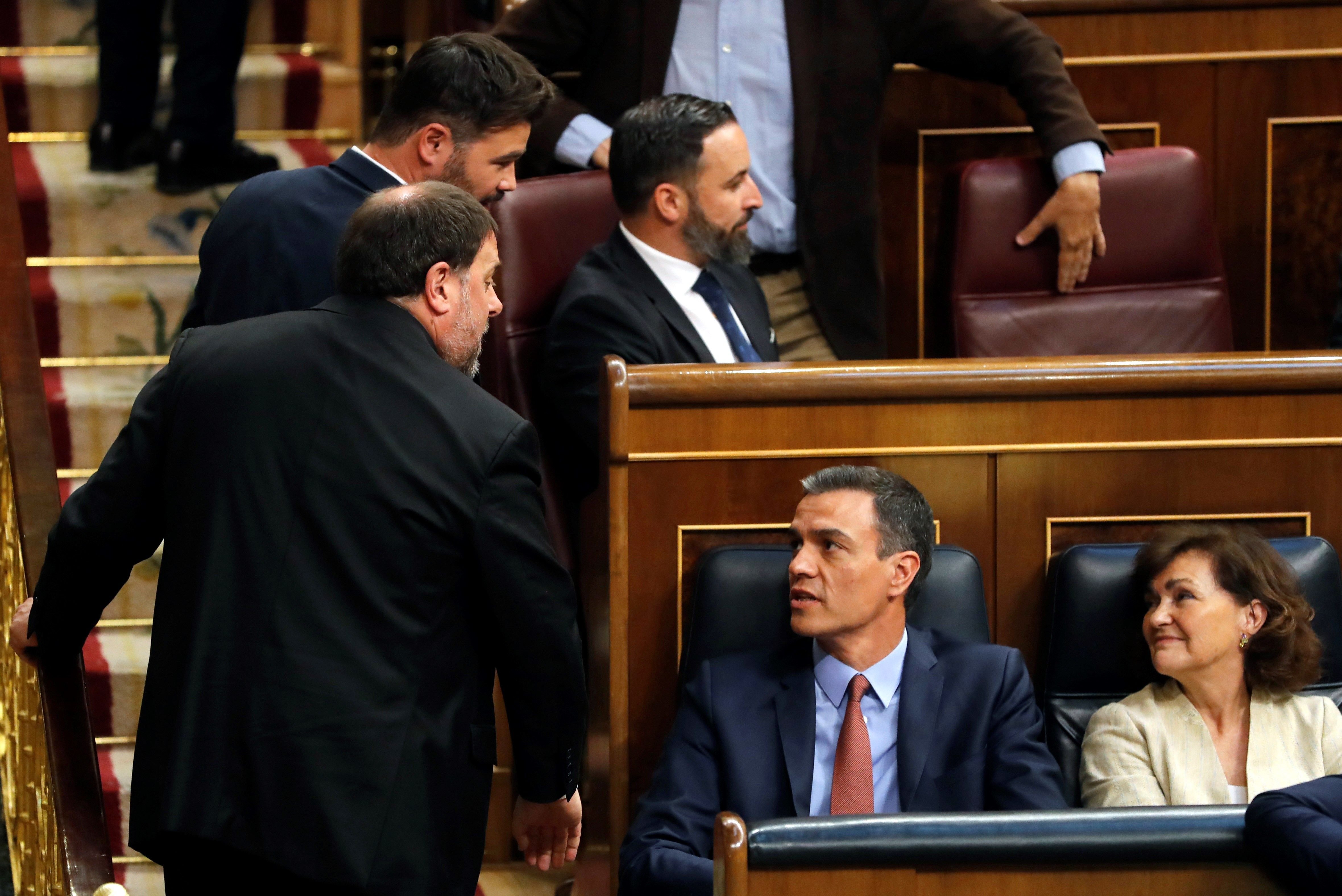It's time to get out the calculator. On Monday, Spain's fragmented Congress of Deputies finally starts the investiture debate to attempt to vote in a new government following the April 28th elections. And on Tuesday, the first vote will take place. Pedro Sánchez, PSOE leader and candidate to be returned as prime minister, needs 176 votes, an absolute majority, to be selected on the first ballot, a remote but not impossible outcome. If he doesn't make it, he has a second chance two days later, on Thursday. Then, all he needs is a simple majority, with more votes for than against.
But in both cases, the votes of the Catalan pro-independence parties Catalan Republican Left (ERC) and Together for Catalonia (JxCat), along with those of the Basque pro-independence party Basque Country Unite (Bildu) are critical. They would have to give Pedro Sánchez a big sí on the Tuesday for the PSOE leader to be successful on the first ballot. They probably won't. But then, two days later, the Catalan and Basque parties' choice between abstention or a complete thumbs-down would make the difference between success and failure for Sanchez.
166 votes, if the coalition takes shape
But the devil is in the digits. To begin with, it needs to be taken into account that for the first time there will not be 350 deputies voting, but 346, due to the suspension of the four jailed pro-independence deputies, Junqueras, Sànchez, Rull and Turull. It has been defined that despite this reduced total, the absolute majority remains as 50% + 1 seat of the original total, that is 176. Now, if negotiations between the PSOE (123 seats) and Unidas Podemos (42 seats, plus 1 more from the Valencian associate Compromís) come to fruition and they are able to close an agreement, the sí vote would reach 166. Ten short of what they need.
Where could those ten sí votes be found? Miguel Ángel Revilla, leader of the Cantabria Regionalist Party (PRC) is likely to be one. Then there's the omnipresent Basque Nationalist Party (PNV), always ready to strengthen stability in Spain and not at all interested in a repetition of elections. If Pedro Sánchez plays his cards right, he could get the votes of the PNV's six deputies. So, the total reaches 173.
173 to 173?
So PSOE + Unidas Podemos +Compromís + PRC + PNV = 173 deputies. But the other three votes might be a bridge too far on Tuesday.
The two members of the Canarian Coalition (CC) are likely to vote no, very much opposed to Podemos entering the government. Two more members, those of Navarra PP-Cs coalition NA+, will no doubt do the same. Assuming that the right wing tripartite, PP-Cs-VOX with its combined 147 votes is bound to vote against Sánchez, then there are 151 votes against and all eyes are on the pro-independence parties. And the arithmetic gets complicated here because ERC, with 15 deputies, only has 14 votes due to the suspension of Junqueras; JxCat has 7, but only 4 effective votes because they cannot count on Sánchez, Rull and Turull; and Bildu has its 4 seats. ERC and Bildu have said they'll consult each other and vote in the same direction.
All three of these pro-independence parties are waiting to see if a PSOE-Podemos agreement comes to fruition, and what it might look like, before defining their final position. Without the 42 Podemos seats, what the Catalan and Basque independence parties say is neither here nor there. But, if there is a coalition deal, they are decisive. If they were to vote sí on Tuesday, Sánchez would have an absolute majority. That's very unlikely.
But then, what will they do two days later? If they decide to simply abstain, then he could become PM in Thursday's second ballot. However, if the indie parties vote no in that second round, they could send Sánchez back to the drawing board, because the no votes of PP + Cs + VOX + NA + CC + ERC + JxCat + Bildu would also add up to 173. And according to the rules, a tie means the investiture is defeated.
If that were to happen, Sánchez could try and reach an agreement later, either with Podemos or with part of the right, by September, but new elections would be increasingly likely.

